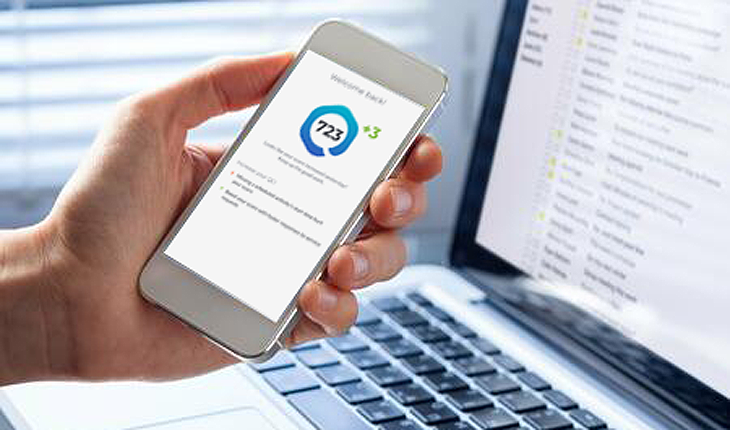8 Buying Tasks Contractors in the Trades Can Automate

Author: Erik Florida
July 9, 2025 - 6 MIN. READ
Key takeaways:
- Automation helps you build a streamlined procurement process and cut costs.
- AI is making automated workflows much more accessible, especially in areas like purchase order generation, invoice matching, and document indexing.
- Raiven's digital supply chain network is an interesting tool for contractors building a modern buying process.
An ineffective procurement process can mean spending a little more time or a few dollars more per order.
These differences can seem small, but they add up over time. Addressing these inefficiencies with a streamlined buying process for contractors in the trades is well worth the effort, with benefits like lower procurement costs, improved visibility, and stronger supplier relationships.
One of the most effective ways to achieve this is through procurement automation. Robotic Process Automation (RPA) has been around for a while, but Artificial Intelligence (AI) is now making buying automation much more accessible for electrical and HVAC contractors like you.
Let’s look at everyday procurement tasks you can easily automate.
1. Purchase Order Generation
You can set up an automation that instantly pulls the necessary data from the purchase request and creates the order for you.
You can also leverage integration to build a more complex workflow:
- If your inventory level drops below a certain threshold for the products you use, you can have an automation create a purchase order.
- This action can depend on pricing data your supplier shares, so you can place bulk orders when prices drop for the supplies you use the most.
This shouldn’t be a one-size-fits-all approach: Automating purchase order generation makes sense for the products you buy regularly and low-value purchases.
2. Purchase Approval Workflows
Your buying team is busy and cannot manually review every purchase request, especially if you’re scaling your business.
That's where procurement process automation comes in:
- You can build a permission-based system that automatically approves requests from a specific user or team.
- Your system can also expedite requests for pre-approved products or suppliers.
- Price-based approvals are another great way to streamline buying, with your workflow greenlighting requests under a specific spending limit.
And if a purchase request needs a human check, you can build an automated workflow to route it to the right person. For instance, a small request could go to a local team lead, while an order exceeding a certain amount would go to the company’s owner.
3. Invoice Matching
Your accounts payable process can benefit from automation. AI’s ability to work with numbers, text-based content, and context makes it an ideal tool for invoice matching.
Invoice matching involves cross-referencing invoices with other documents, including your purchase orders, receiving reports, and even negotiated contract terms. It’s relatively simple to implement and will help you catch pricing and double-billing errors.
4. Spend Analysis
Automating spend analysis reports helps with:
- Visibility over your spending, allowing you to find any changes and spot trends quickly. You can then use this information to improve procurement spend management.
- Gaining a better understanding of where you spend money. AI is great at identifying spending categories that can be hard to capture without creating manual purchase labels.
You can use this information to earmark your procurement budget more accurately or spot your top spending categories. It's a great starting point for determining where to negotiate better prices with vendors. Plus, this increased visibility into your spending habits can support better quotes.
5. Shipping Status Tracking and Alerts
Modern supply chains increasingly use data and digital solutions. This creates an environment where buyers and vendors can share data and build connected workflows.
Here’s an interesting use case:
- Integrate shipping and tracking data from your vendors into your system.
- Automate order tracking and build a workflow that sends you alerts for specific orders or in case a delay happens.
This approach makes tracking multiple orders much easier and draws attention to potential shipping issues you might have to escalate.
6. Returns and Claims
Imagine the following:
- The product you received is defective.
- Your order doesn’t match the quality standards you agreed on.
- A vendor failed to honor a price-matching clause in your contract.
Without automation, a procurement team member would have to spend time gathering the necessary information and filing a claim with the supplier in question.
There’s a better way to handle returns and claims with AI. You can use AI to automatically extract contract terms regarding returns and claims, generate communication with the supplier, and even populate return forms.
7. Document Indexing and Searchability
For many contractors in the trades, buying is becoming more complex. This means managing a supply chain with a growing number of suppliers and working with a larger document repository.
It's easy to get overwhelmed between contracts, purchase orders, invoices, and your internal documents. The good news is that generative AI analyzes this type of content and can help you search through a database that mixes qualitative and quantitative data.
AI agents are a growing automation trend for procurement teams, and building your agents is easier than you might think. Your custom AI agents can search through your procurement database and assist team members with things like extracting contract terms, answering questions about specific orders, or compiling reports for your audit trail.
8. Supplier Onboarding
Disruption is the new normal for procurement in the trades, and many contractors are adapting by adding more vendors to their supply chain. Broadening your scope also allows you to secure the best prices and access the latest products in areas like electrification.
Onboarding new vendors can be time-consuming since you must research your options, vet new partners, gather information from them, and integrate their purchasing systems into your procurement process.
You can streamline these tasks with automation:
- Look into automating how you collect data from suppliers.
- You can also build a database of vendors in your industry to identify more vendors easily in the future.
- AI can help you vet suppliers based on insights gathered online.
- Once you’ve found a new supplier, you can automate communication with them and even use AI to streamline negotiations for your contract.
Streamline Procurement With Raiven
Improve procurement efficiency and cut costs with Raiven’s digital supply chain network, which connects you directly to electrical and HVAC vendors.
Our seamless platform allows you to manage your suppliers and buying activities in one centralized location. It can also easily integrate with your ERP, accounting, and field service tools.
Raiven is on a mission to transform buying for the trades. Our innovative platform connects contractors, enterprises, and suppliers into a digital supply chain network.
The goal is to simplify sourcing, reduce costs, and unlock operational efficiency. New business opportunities become available, and you can scale faster.
Visit Raiven for more information on building a better buying process.


